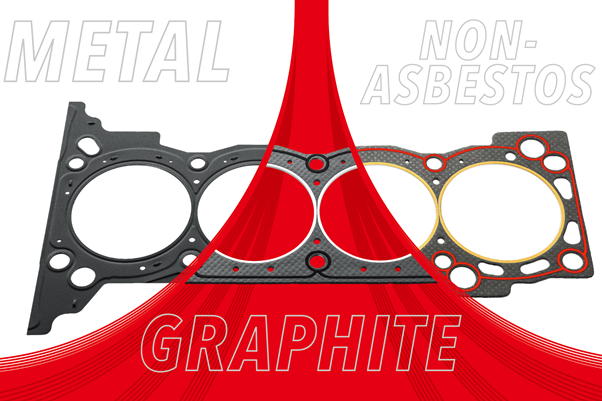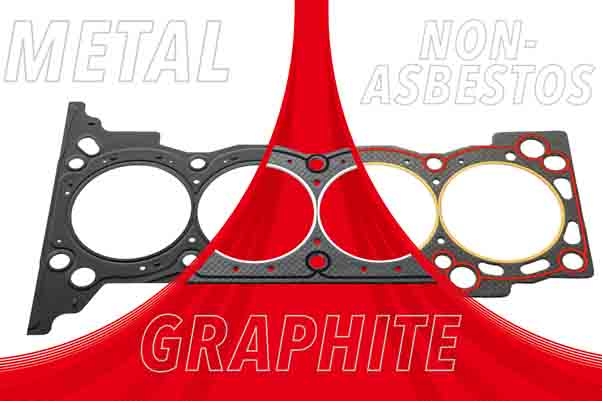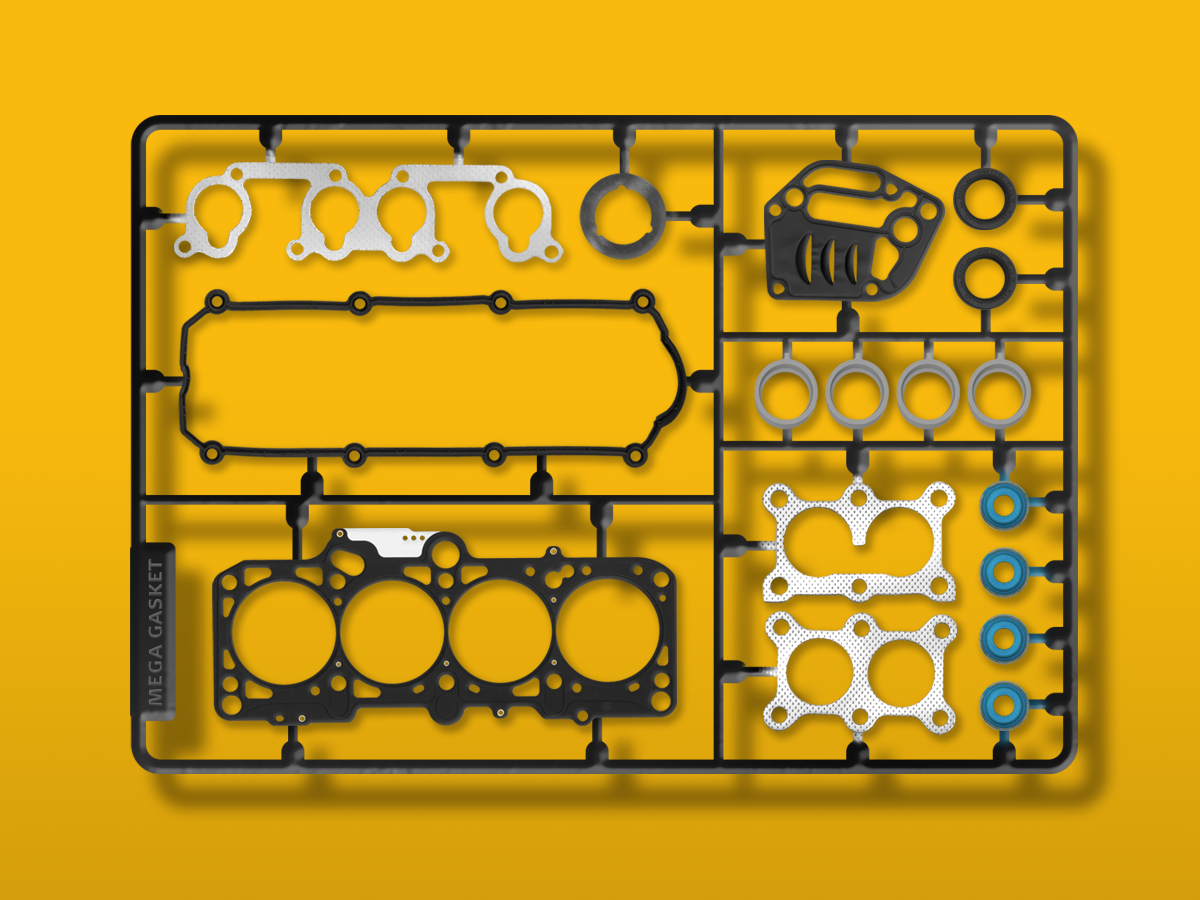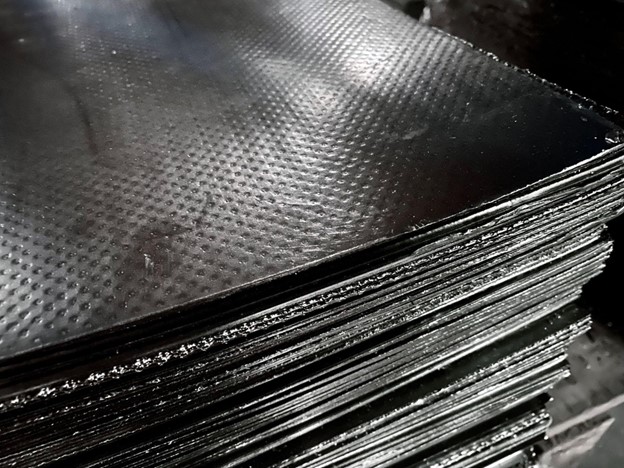- What Is a Head Gasket?
- What Does a Head Gasket Do?
- What Causes a Blown Head Gasket?
- Check for Signs of a Blown Head Gasket
- How to Prevent Blown Head Gasket
A blown head gasket could cause big problems for the engine of your car. Knowing what could make it blow and how to prevent it helps to protect your car. The important things to know are what a head gasket is and does, how to identify it, how to check if it's blown, and how to stop it from happening.
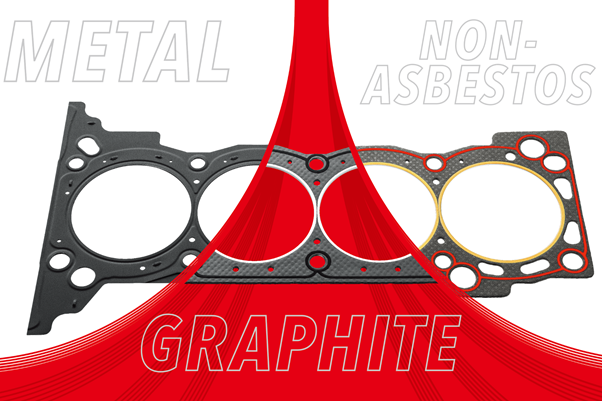
What Is a Head Gasket?
A head gasket is a small component in your engine that is used to seal the internal combustion process. It allows coolant and oil to move through the engine and keep it cooled and lubricated. By sealing the combustion chamber in the engine, it helps the engine to produce enough power to move the vehicle forward. It also directs harmful gases through the exhaust system so that they don't enter the combustion chamber. You can find the head gasket between the cylinder head and the engine block. It's made with steel and elastomer to create a more durable head gasket than older models.
What Does a Head Gasket Do?
The head gasket keeps the pressure from the spark plug's ignition of fuel vapors inside the combustion chamber. It also ensures that the chambers for oil and coolant remain separate so that they can each do their jobs without creating any unwanted mixing.
What Causes a Blown Head Gasket?
There can be several causes of a blown or damaged head gasket, but it happens most often due to the engine overheating. If an engine gets too hot, this is likely due to a lack of coolant in the radiator, which is probably caused by a leak. Some head gaskets are also more likely to sustain damage than others. Depending on the material that they are made from, some can last longer than others. For example, gaskets that are made with aluminum might not last as long because aluminum expands faster when heated and could weaken. High temperatures could cause the metal to warp. When the cylinder head expands and becomes distorted, it prevents the head gasket from sealing properly, leading to a leak.
What will happen when the head gasket leak?
A head gasket leak occurs when the seal is damaged or blown. This enables coolant to leak and it may result in overheating. If there is an issue with the head gasket, this will impact engine function and it could lead to long-term problems. If you are concerned about your vehicle, it’s always beneficial to seek professional advice. The sooner head gasket repairs are carried out, the better.
Related article: Head gasket leak: Why you need to repair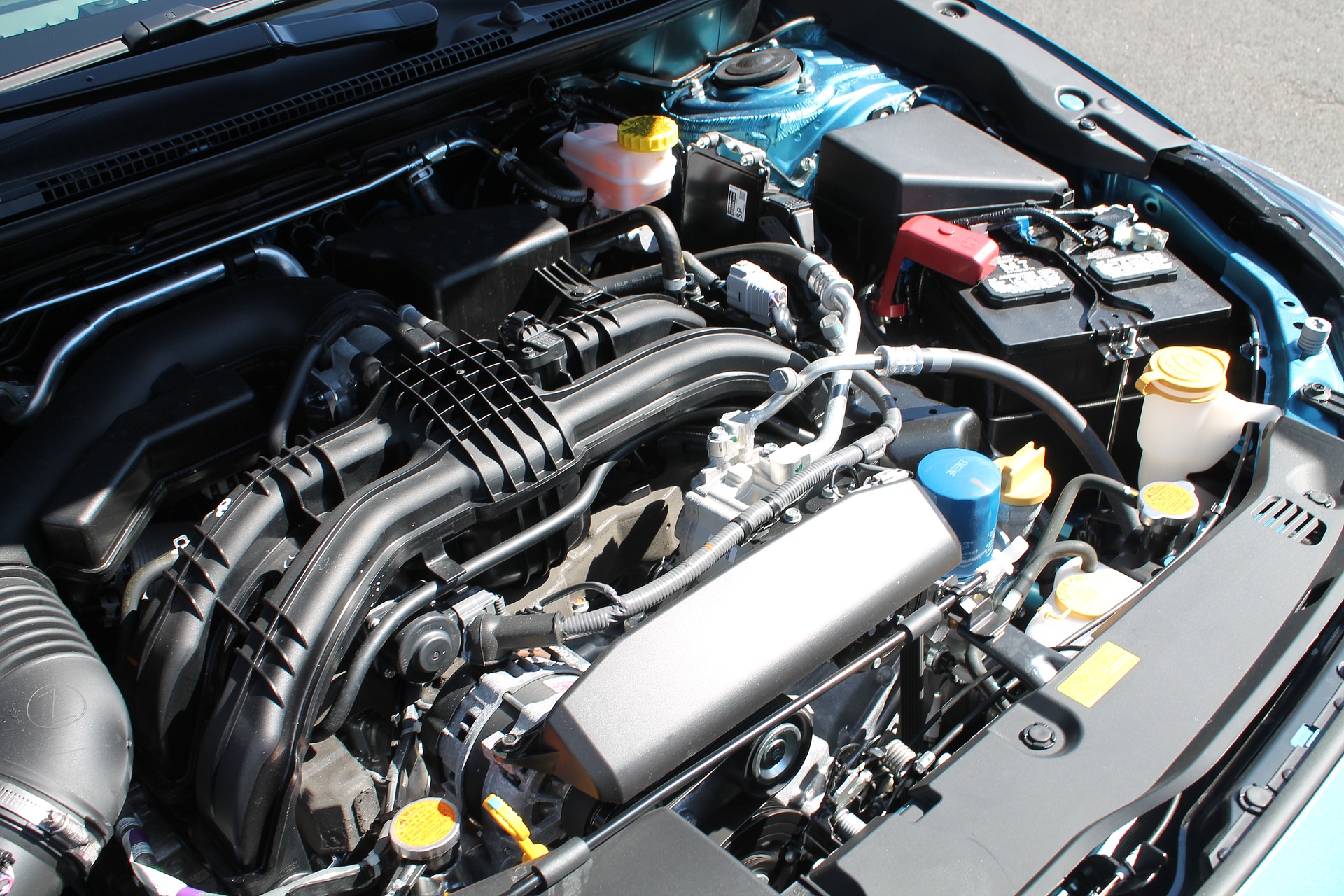
Image from Pixabay - CC0 License
The consequences of a blown head gasket can be serious. It can lead to significant damage to the vehicle's engine because it should be helping to maintain pressure. A blown gasket isn't acting as a seal, as it should, meaning that pressure will be released from the combustion system. This reduces the engine's power, causing a variety of problems. Without the proper seal, oil and coolant can also leak, causing cross-contamination. Coolant mixing with the oil dilutes it and the cooling system will also be affected, which can lead to the engine getting too hot.
Check for Signs of a Blown Head Gasket
Knowing what to look for to spot a blown head gasket will ensure you can spot it right away. There are some key signs to watch out for that will help you to identify a blown head gasket, ensuring you can repair it as soon as possible.
Unusual Exhaust Fumes
Watch out for what's coming out of your tailpipe. White smoke could be an indication that your head gasket has blown, especially when you're starting up your car. You can see white exhaust fumes as your car is trying to start up and the cylinders aren't being cooled properly. Another suspicious exhaust fume color to look out for is blue fumes. Blue smoke coming out could suggest that your engine is burning oil. Any smoke coming from your tailpipe can be a warning sign of a blown head gasket.
Overheating Engine
If your engine is overheating, this is a big clue that you could have a blown head gasket. If oil starts to leak into your coolant system or coolant is leaking out, it affects the cooling of your engine. This means that your engine will overheat. A leak could result in bubbles in your overflow tank, which indicates that the cylinder is leaking into the cooling system.
Visible Leaks
As well as experiencing the consequences of leaks, you might also be able to spot the visible signs. You might see oil or coolant leak out between the engine block and cylinder head. You can sometimes see streaks of oil or coolant coming out of the gasket. On the other hand, you might find that you're losing coolant but you can't see any leaks. This is also a sign that you could have a blown gasket.
Signs in Fluids
When your head gasket isn't doing its job, oil and coolant can end up mixing when they shouldn't. One possible sign of this is that you see discoloration in your fluids. If oil has been in contact with coolant, it can foam up. If the coolant has had oil start to creep into it, you can notice a thick, white film either in your radiator caps or sometimes in the overflow reservoir.
Loss of Power
Pressure in the combustion chamber will decrease if there is a problem with the head gasket. This means that your car will lose engine power, so watch out for this as a sign that your head gasket has blown.
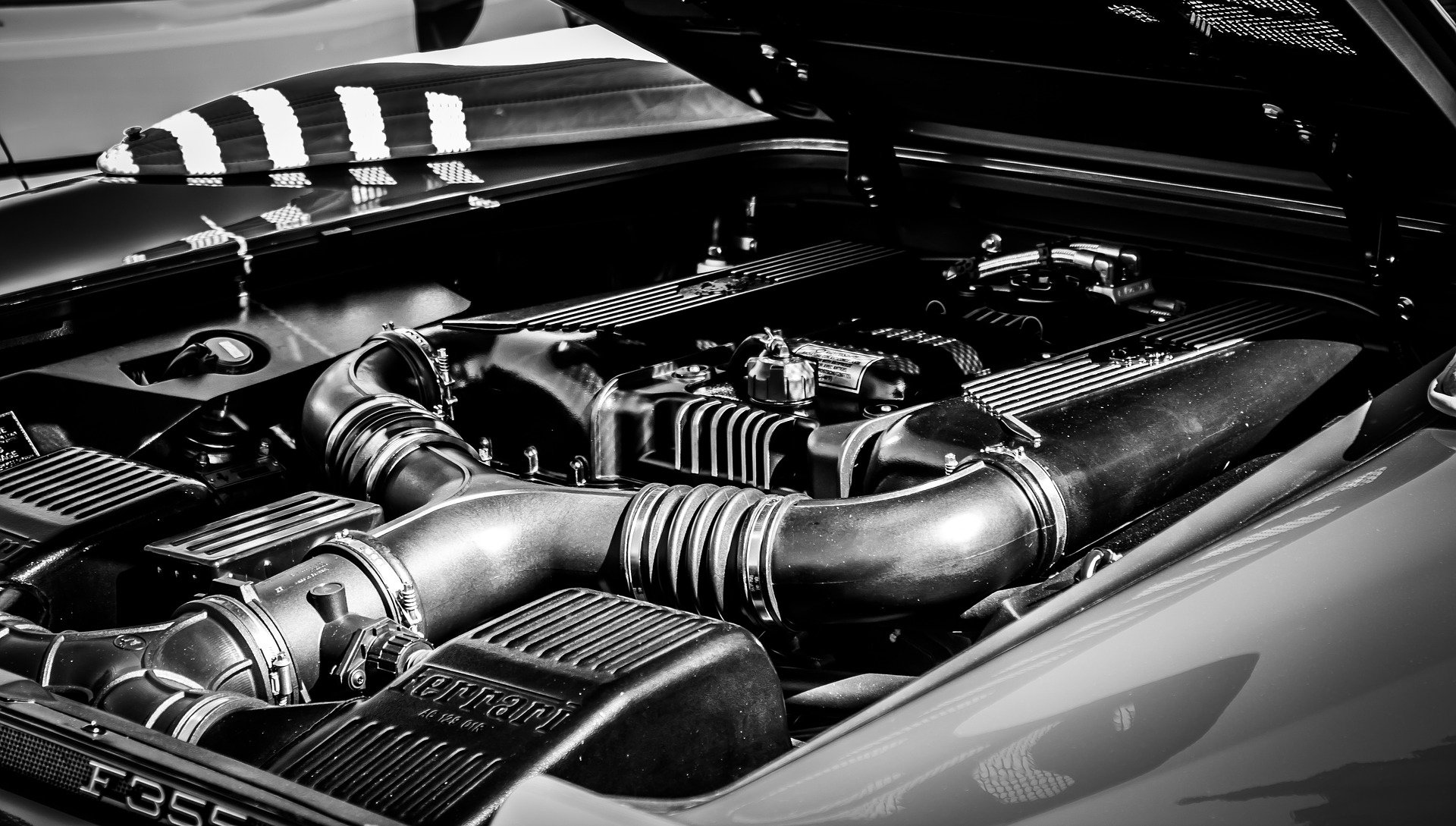
Image from Pixabay - CC0 License
How to Prevent Blown Head Gasket
Being able to spot the signs of a blown head gasket is definitely useful, but it's even better if you can prevent your car's head gasket from being damaged. In fact, it could be a whole lot cheaper to prevent the damage from happening in the first place compared to having to get your car repaired if anything happens. Although a head gasket doesn't cost much on its own, it's not just the part that costs money. Replacing the head gasket takes a lot of work, which drives up the price of the repair.
Check your car if there is overheating that might damage the head gasket
An overheating car can be a sign that your head gasket has blown, but it can also be the cause of a blown gasket. If your car repeatedly overheats or you continue to drive after your car has overheated, it could lead to damage to the head gasket. So one of the best ways to prevent a blown head gasket is to ensure your cooling system is in good condition. When your cooling system is working, it will prevent your car from overheating and protect the head gasket. If your car does start to overheat, stop driving, let it cool, and then refill your radiator before you drive again.
Check your cooling system and the leaks
Regularly checking over your cooling system will help to ensure that it stays in good condition. You can check for any leaks, that the radiator is working, the thermostat opens properly, and that there is enough coolant in the system to keep it working. It's also a good idea to check the fan to make sure it's working and that all of its blades are present and intact. Keeping the coolant at the proper level is key to ensuring your cooling system is working well, so follow your owner's manual to make sure you know how often you should be checking it. Keep an eye on your temperature gauge as well so that you know if things are starting to heat up and you need to have the car checked out.
Check the head gasket is installed well and not too tight or too loose
It's possible for your head gasket to fail simply because of its design. If it's an older gasket made with less robust materials, it could mean that it fails sooner than a newer type. If your car has an older head gasket, getting it replaced with a newer one before it fails could be a good choice. Bad installation could cause problems with a head gasket too. If the head bolts are either too tight or too loose, it could prevent the head gasket from forming a seal and working as it's expected to.
Check the combustion gasses in the cooling system to ensure the head gasket hasn’t failed
If you want to check to see if your head gasket has failed, you can check for combustion gasses in the cooling system. One way to do this, which mechanics will also use, is to take off the radiator cap and start the car, then watch for bubbles in the coolant. If you see bubbles, this indicates that the gasket has blown and the compression system has leaked into the cooling system. However, if you don't see any bubbles, don't take it as a guarantee that the head gasket is fine. It could still be damaged even if there are no combustion gasses in the cooling system.
Preventing your head gasket from getting damaged is the best thing to do if you want to protect your car. It's much cheaper to care for your car on a routine basis compared to fixing the problems that can be caused by a damaged head gasket. If it does get damaged, the next best thing is to catch the problem as soon as possible. Be on the lookout for signs that your head gasket might have blown so that you can correct the problem quickly and prevent it from causing further damage.
Take care of your head gasket by looking after your car's cooling system and watching for early signs of problems.
Select your head gasket in MEGA Gasket: Contact us for MEGA Head Gasket
CONTACT US This email address is being protected from spambots. You need JavaScript enabled to view it.
 |
Author: MEGA Gasket established since 1979, granted ISO 9002 in 1999 and updated to ISO 9001:2015 in 2017, and the main production is for automobile and all kind of engine gaskets. MEGA have profuse experience and good reputation in Taiwan. Learn more about MEGA Gasket manufacturer and supplier. |

